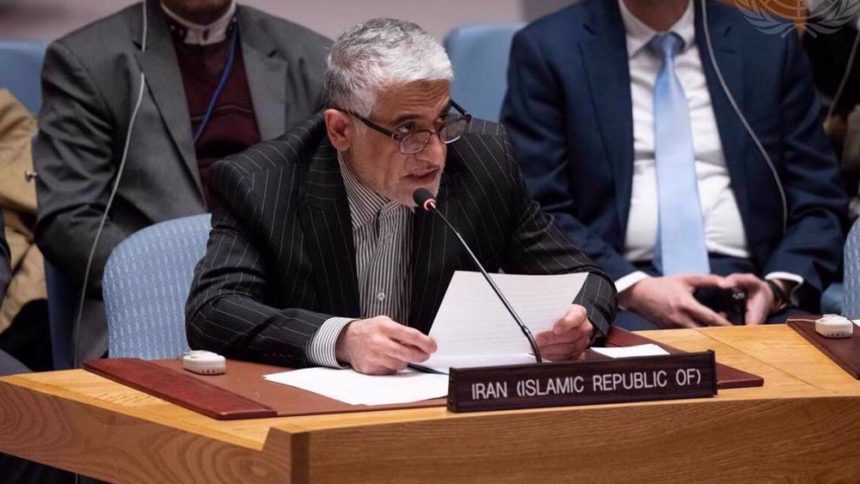RASC News Agency: The Permanent Ambassador of Iran to the United Nations has articulated the nation’s commitment to collaborate on endeavors aimed at establishing enduring peace in Afghanistan. Amir Saied Iravani, speaking on Wednesday, December 20, during a United Nations Security Council session on Afghanistan in New York, emphasized that Central Asian countries should not only engage in international diplomacy and normalize relations with the Taliban or formally recognize it but also play a role in ameliorating the situation for the people in the region.
He stated, “Iran remains unwavering in its dedication to close cooperation with neighboring countries, relevant partners, and the United Nations to foster enduring peace, security, and stability in Afghanistan.” Additionally, he expressed hope that authorities would effectively fulfill their international commitments, particularly in executing commitments towards their neighbors. Iravani underscored the severe threat posed by the Taliban and its affiliates due to the continuous presence of groups linked to terrorist organizations such as ISIS and Al-Qaeda.
Iravani reiterated that Iran maintains “active engagement” with the ruling faction in Kabul, being directly affected by the situation, addressing the consequences in Afghanistan, and hosting millions of Afghanistani refugees. He added, “This interaction is conducted bilaterally and through regional mechanisms, with the goal of enhancing and improving the humanitarian situation and facilitating Afghanistan’s economic advancement.” Emphasizing the need for impartial humanitarian aid and the lifting of sanctions to support Afghanistan’s economic recovery, Iravani highlighted Iran’s commitment to addressing the humanitarian crisis.
Meanwhile, Iran’s representative criticized Taliban authorities for not taking significant steps towards achieving “real national and political inclusivity” in the country and imposing severe restrictions on women and girls, hindering their access to education. In August 2021, the Taliban regained power following extensive advances across the country, leading to the tumultuous withdrawal of foreign forces led by the United States and the rapid collapse of the country’s security forces.
Post the departure of foreign forces, Washington imposed sanctions on Afghanistan, freezing its assets, and foreign aid has significantly diminished since then. Key assets of the central bank have been seized by the United States, exacerbating one of the world’s most severe humanitarian crises.






